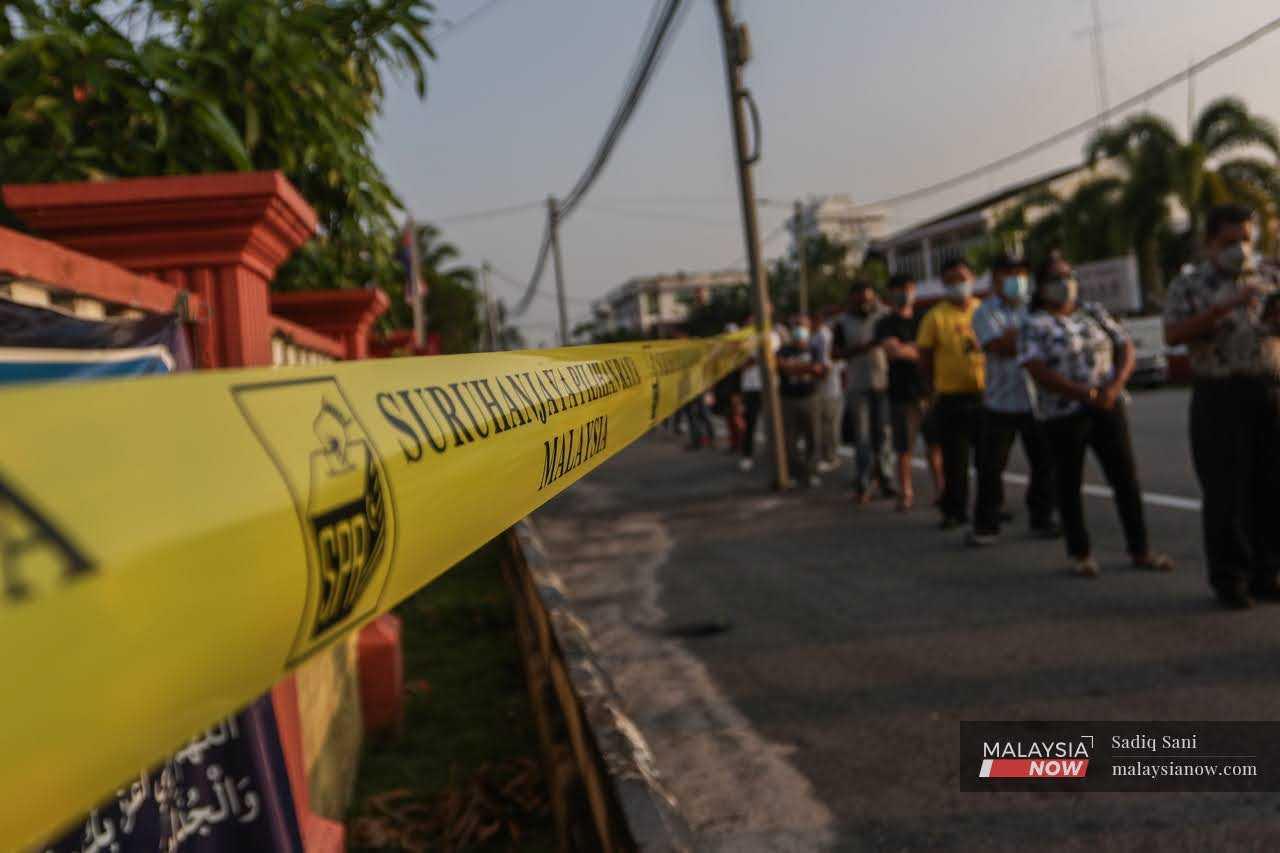Who benefits from a boycott of GE15?
Analysts say it's possible that a low voter turnout is the very scenario that one group has been working towards.
Just In
Calls have arisen among some quarters for a boycott of the 15th general election (GE15), amid concerns about the northeast monsoon season and dissatisfaction with the move to dissolve Parliament, even as the Election Commission (EC) announced the dates for polling, setting off the countdown towards the chosen date.
But as parties swing into action ahead of the official campaign period, political analysts agree that a boycott of the election would only benefit one group.
Speaking to MalaysiaNow, they also said it was possible that this was the very scenario that the group had been working towards.
James Chin, of Australia's University of Tasmania, said there was merit to talk that Umno wanted an early election to ensure a low turnout of voters.
He said the party wished to continue riding on the momentum it had gained at the Melaka and Johor state elections, both of which Barisan Nasional (BN) won by a landslide.
The Melaka election in November last year saw BN winning 21 of the 28 seats in the state legislative assembly.
And in Johor, where polls were held in March this year, BN won 40 of the 56 state seats.
Both elections saw a low turnout of voters, with 65.85% in Melaka and 54.92% in Johor.
This was far lower than the EC's projection of 70%.
"This perception would be correct," Chin said, referring to the benefit of similarly low numbers for Umno at GE15.
"Umno wants to continue its momentum from the Melaka and Johor polls, as well as the Sarawak election in December last year."
Prime Minister Ismail Sabri Yaakob dissolved Parliament on Oct 10, paving the way for GE15 despite objections including from within his own Cabinet, where all 12 ministers from Perikatan Nasional wrote to the Agong to voice their disagreement with an early election.
Ismail later defended his decision, saying the dissolution of Parliament was done to put a stop to those questioning the legitimacy of the so-called backdoor government by returning the mandate to the people.
"It was also part of a string of political developments whereby the 12 ministers behaved inappropriately by writing to the Yang di-Pertuan Agong," he said.
"The dissolution was done to prevent an outbreak of disharmony in the administration of the government."
He also denied succumbing to pressure from Umno, again pointing the finger at the so-called "PN 12".
Oh Ei Sun of the Singapore Institute of International Affairs said a low voter turnout would give Umno the edge as it had a bigger election machinery than the rest of the political parties in the country.
Come time for the election, he said, Umno would mobilise all of its forces to ensure that its supporters turn out to vote.
"Umno has a huge machinery at the grassroots level to deploy in order to assist its supporters in voting, even in challenging circumstances," he said.
"It cannot be matched by the opposition parties."
Chin meanwhile did not rule out the possibility of efforts to free former prime minister Najib Razak from prison if Umno succeeds in forming the government without the help of other political parties.
Najib is currently serving a 12-year jail term at Kajang Prison for the misappropriation of tens of millions from SRC International.
"This is one of the other factors for why the court cluster wanted GE15 to be held early," Chin said, referring to the group of Umno leaders facing criminal charges in court.
Subscribe to our newsletter
To be updated with all the latest news and analyses daily.
Most Read
No articles found.
